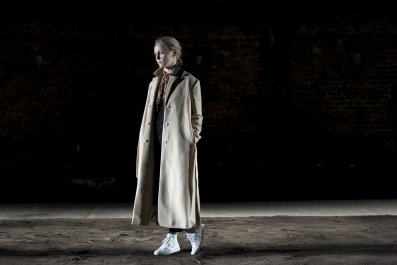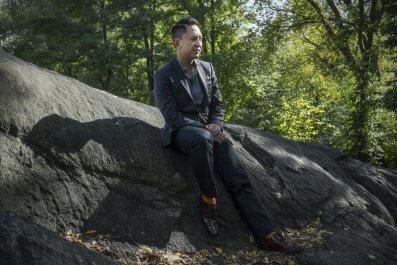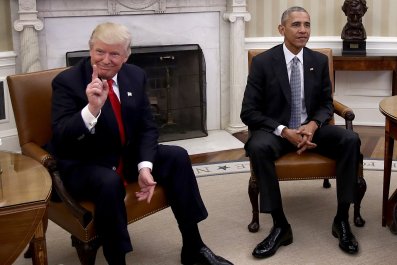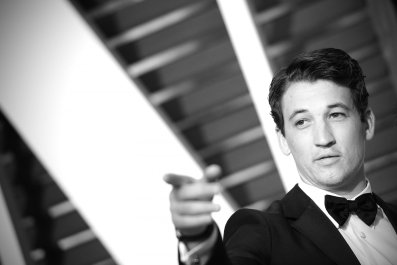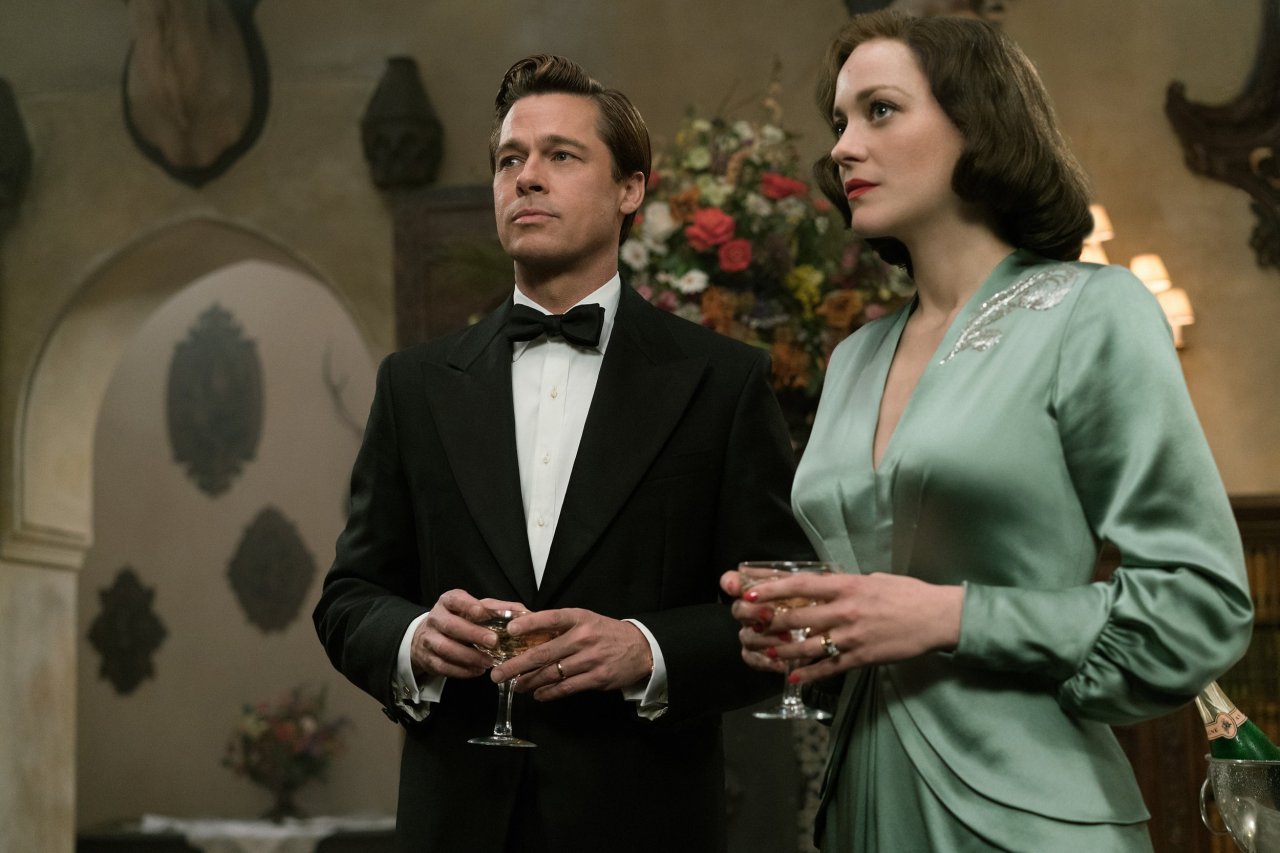
Remember when spies used to be sexy? Jason Bourne runs too fast for romance; he's a chaste ninja for whom women are agents of grief, not objects of desire. You have to go back to 1975, to Faye Dunaway and Robert Redford in Three Days of the Condor, to find intrigues of the state and the heart plotted as if they were the same thing. Or the stars of Notorious, shot by Alfred Hitchcock in 1946 in such enveloping close-up that all else—the Nazis, the uranium ore MacGuffin—was forgotten. Try telling anyone that Notorious is about the atomic bomb, and all you get is blank stares. But how absurd. It's about Cary Grant nibbling Ingrid Bergman's ear.
Now we have Robert Zemeckis's Allied, which stars Brad Pitt as a Canadian intelligence officer named Max Vatan. We first meet him parachuting into French Morocco in 1942, wearing sunglasses and a turban, a few locks of pomaded hair grazing his forehead in a way that makes you want to grab him by the shoulders and blow hard. His superiors collect him—in a Bentley—from the middle of the Sahara, then issue him a new passport, a gun and a Resistance-fighter wife (Marion Cotillard), whom he meets for the first time in a nearby town: Casablanca. You must remember this: a bar, a guy and a gal, a band playing old jazz standards. She looks his way; the two exchange quiet glances; Cotillard holds his gaze for a few seconds; then her face lights up. "I keep the emotion real," she tells him in the car afterward. "That's why it works."
Against all odds, so does the film, at least for the first hour, cleaving beautifully to the old rules of the genre: These two will deceive each other, then fall in love, then find it hard to tell the difference. As he proved in Back to the Future and Who Framed Roger Rabbit, Zemeckis is the snappier kind of nostalgist, treating the past as a giant jumble sale to mix and match as he sees fit. Shot largely in the studio, like old RKO pictures, Allied whisks us briskly from one pleasure to the next. We get Cotillard in a series of shimmering vintage gowns, sharing cigarettes with Pitt on the roof like Bette Davis and Paul Henreid in Now, Voyager, exchanging single entendres over breakfast ("I know you're armed with a weapon. I'm just checking the safety catch is engaged") before having sex in a car in the middle of a sandstorm. That old number, you might think—a leftover from The English Patient. But Zemeckis does something remarkable with the sound, amping up the sand's soft assault until you feel the scene on your skin, like one big caress.
More remarkable is the sound, never before recorded on film, of Pitt speaking French. "That was pure Quebec," Cotillard teases him; but still, there aren't many stars who would even try. In middle age, Pitt is getting remarkably self-assured. Gone are the itchy tricks and tics (the wet lip, the endless snacking) with which he used to fend off the camera's scrutiny. In their place, he uses a sphinxlike gaze and a fast and low line delivery, smuggling dialogue into scenes almost without moving his mouth, like a ventriloquist. I don't know how it rates as acting, but as a movie star performance, it's gold.
Cotillard fares less well. For whatever reason, Hollywood has her pegged as a femme fatale, as if there were no other possible use for her Frenchness than shiftiness. But she may be too good an actress to cut it as an old-school movie star. She's doing a filigree version of va-va-voom sexiness, like a sketch of Jessica Rabbit dashed off by Matisse, but only in her native French does girlishness make way for womanly power.
At its halfway point, the film abruptly changes course. Cotillard gives birth in the middle of the Blitz and marries Pitt, and we relocate from French Morocco to Hampstead Heath. Casablanca for Hampstead: I'd be hard-pressed to name a filmmaker who could pull off that trade. Maybe only Hitchcock, particularly the Hitchcock who made The Man Who Knew Too Much, which succeeded in making Islington feel like the casbah. But Zemeckis lacks the master's feel for the suburban uncanny . Allied's central question—is Cotillard a foreign spy or not?—which should have been given hallucinatory focus, has by the end frayed into a series of subplots, with Pitt running between each like an overworked waiter. It all ends on an airfield in the rain with everyone shouting to be heard over the propellers, à la Casablanca. Except that afterward, you won't recall a thing.
ALLIED begins worldwide releases November 21.






